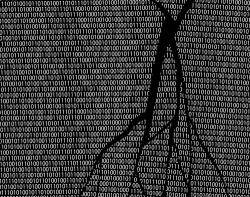Data scientists have a prominent place in today’s society. They’re a big part of every industry, and just about everyone who loves big data analytics wants their job. Sometimes, it can seem like what they do is magic. Of course, when you pull back the curtain, they’re just people—very smart people. Many data scientists have amassed an impressive amount of wisdom throughout their big data careers, so if you’re feeling stuck in your job, take note of these four lessons from leaders in the field. When you apply these lessons to your own life, you just might find yourself on the path to the job of your dreams, whether that’s in data science or not.
1. Don’t Fear Failure
It’s an interesting paradox: just about all of us fear failure, but it’s failing that sometimes helps us learn and get ahead—in big data careers and beyond. João Marcos Gris failed again and again when he first tried to land a data science role with a BSc in computer engineering. That said, the failure of getting turned down taught him to seek feedback and learn from it to ultimately get the results he wanted.
“I really felt that this experience was very enriching for me, despite being a very tiring one also,” Gris wrote on Hackernoon. “I’ve made a lot of mistakes along the way and tried to improve myself for each and every one of the applications that I did.”
Turning your failures into learning experiences is the only way to climb higher to ultimately get the results you want.
2. Don’t Be Afraid to Go Back to School
Steve Mills of Booz Allen Hamilton notes that big data careers aren’t just about crunching numbers. He emphasizes the need to think creatively and artistically, even in a field like big data analytics that is considered to be very mathematical and logical. Data scientists, Mills told KDnuggets, “aren’t just computer nerds.” They need to have communication, curiosity and creativity. Sometimes, cultivating that creativity takes a little nudge.
If you feel like you’re stuck in a rut, it may be time to think about reinvesting in your education. If you’ve always been logical, try taking some creative classes. Explore new science careers, or a career path in a totally different focus. Going back to school can help you expand your knowledge and thinking, gain a new perspective, specialize your skills, improve your resume, develop a larger network, and advance your career.
3. Stay Driven
It’s not always easy to keep up your motivation when you’re tired or discouraged. The journey doesn’t stop when you reach your ideal job in big data analytics. You need to stay humble and driven, and you should always be asking the next question and pushing yourself to be better. The world doesn’t stand still, and neither should you—aim to always be seeking knowledge from others and adapting to the world around you.
Field leader Bill Schmarzo says that one of the first skills he looks for when hiring data scientists for science careers is humility—not necessarily skill. He knows that people who maintain humility work better in teams and will always stay driven, perpetually aiming to improve themselves and their work. He also sees it as the biggest factor in creating a strong hypothesis, which is absolutely crucial for data scientists.
4. Learn to Leverage the Unlimited Potential of Data
Former U.S. Chief Data Officer DJ Patil has jumped between a number of positions, ranging from LinkedIn to eBay to professor to government official. His success in so many science careers has been thanks to both the rise of data and his ability to leverage its potential to create new opportunities.
Patil also has a remarkable ability to discover innovative solutions to problems. During his first year as a graduate student, he went to administrators in hopes of gaining access to the computer lab, which was off limits to first-year grad students at the time. Patil went straight to one of the professors and asked how he might get computer access. The man who would become his mentor gave him a note, and the administrators reluctantly granted him access to the lab.
It’s clear that Patil has used that approach of applying creative solutions in nearly everything he does. You need creativity and drive to leverage the nearly unlimited power of data. Today, we’re seeing just how powerful it can be in almost every sector—even criminal justice. No matter what your ideal career path may be, there’s almost certainly some way to use data to your advantage. Use your determination to propel you forward, and don’t take no for an answer.









